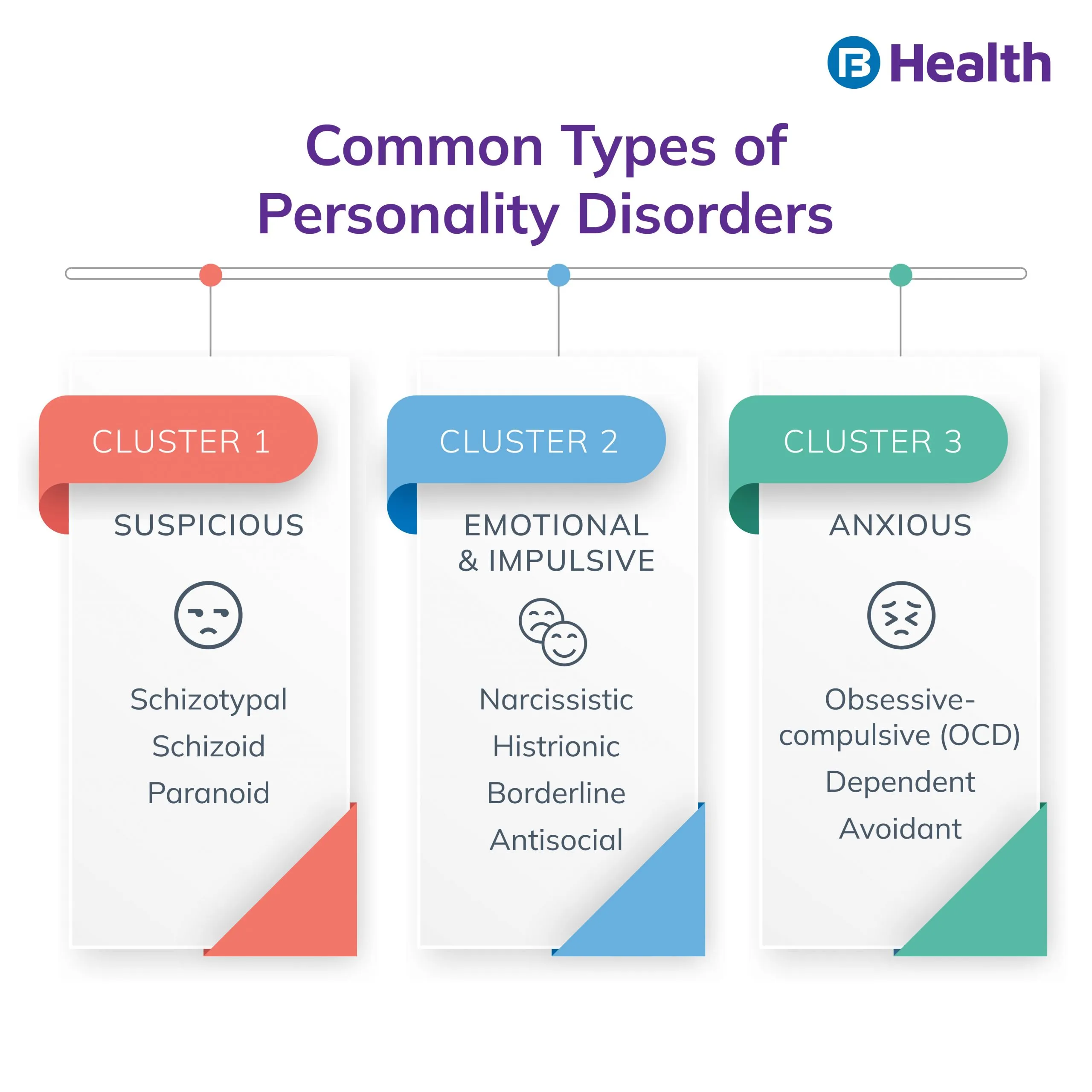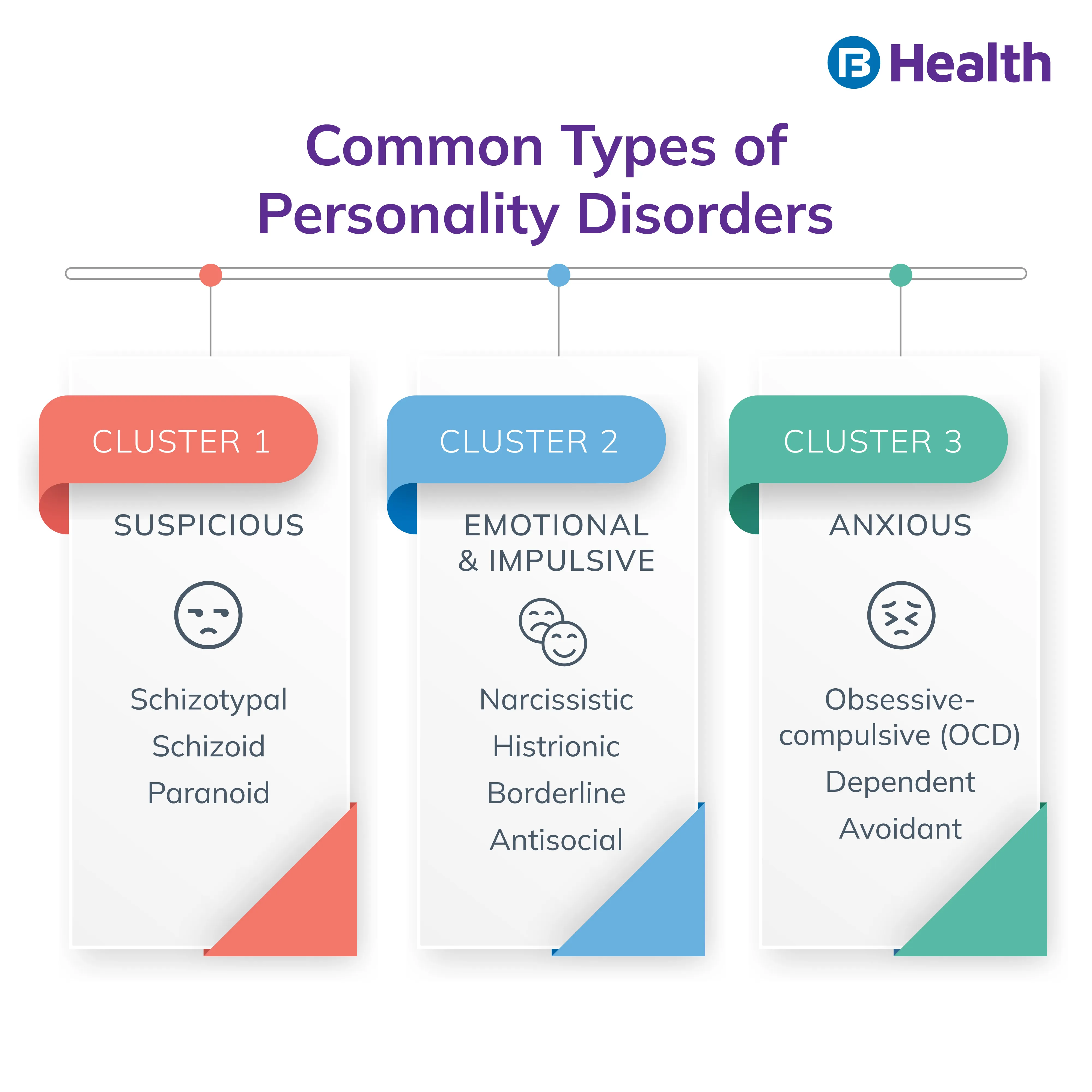Psychiatrist | 5 min read
Schizotypal Personality Disorder: Symptoms, Risk Factor and Diagnosis
Medically reviewed by
Table of Content
Synopsis
A schizotypal personality disorder is a condition that becomes visible with loneliness, distorted patterns of thoughts and unusual behavior. Know more about schizotypal disorder here.
Key Takeaways
- Lifetime prevalence of schizotypal personality disorder is around 4%
- Schizotypal disorder is believed to be more common in men than in women
- Schizotypal personality disorder symptoms include unusual thinking patterns
When it comes to unusual traits, everyone may have their own share. But when you or your loved ones find it troublesome to form trusted relationships due to eccentricities and newly developed thinking patterns, it indicates a chronic mental health condition named schizotypal personality disorder (SPD). As per data from the United States, the lifetime prevalence of this disorder is around 4%, and men are more prone to this condition than women [1].
The condition is usually diagnosed in early adulthood. People with schizotypal disorder may consider superstitions and their paranoid beliefs as the indisputable truth and mistrust others around them. Other patterns observed in schizotypal personality disorder include unusual dressing and vague speech. Due to all this, it becomes extremely difficult for someone suffering from this disorder to make friendships or even close acquaintances at work or school. Read on the know about the risk factors and symptoms of schizotypal personality disorder and learn how to manage this chronic condition.
Risk factors of Schizotypal Personality Disorder
Studies are ongoing to determine the exact causes of the schizotypal disorder, but researchers believe that this condition stems from both genetic and environmental preconditions. In case any of your parents or blood relatives have schizophrenia, schizotypal disorder, or any other mental health conditions, you are at high risk of developing this condition during your adulthood.
If you are already suffering from mental health conditions like bipolar disorder, borderline personality disorder, and post-traumatic stress disorder, you may also develop a schizotypal personality disorder. Environmental factors during childhood like stress, trauma, neglect, and abuse may also lead to the development of schizotypal personality disorder in adulthood.
Additional Read: What Causes Psychosis
Schizotypal Personality Disorder Symptoms
When someone gets affected by this disorder, they go through three stages of the condition. First, they find it difficult to form intimate bonds and tend to remain friendless. Then, they start thinking about or interpreting things in an unusual and distorted pattern. Finally, they resort to exhibiting eccentric behavior.
All this can come with a few of the following schizotypal personality disorder symptoms:
- Belief in magic and superstitions
- A constant mistrust of other people’s intent and loyalty
- Heightened social anxiety coupled with eccentric thoughts
- A lack of proper emotional responses
- Unusual sense of dressing
- Sensing the presence of absent persons
- Taking harmless discussions or events personally and behaving rudely to others
- Blabbering or incoherent speech
People who suffer from the schizotypal disorder may not have hallucinations and delusions that are chiefly symptoms of psychosis. But such people have peculiar ideas of reference, which makes them decipher casual incidents in a distorted manner, giving them improper meanings.
Schizotypal Personality Disorder Vs Schizophrenia
Though the conditions may appear similar, there are stark differences between schizotypal personality disorder and schizophrenia. Psychotic episodes like hallucinations and delusions are quite common in schizophrenia, but people with the schizotypal disorder usually don’t experience them. Schizophrenic people may also refuse to admit any abnormality in their ideas, while people suffering from a schizotypal personality disorder may generally accept it. However, if not managed on time, people suffering from the schizotypal disorder may eventually become schizophrenic.
Additional Read: Schizophrenia: Meaning, Symptoms, Causes and Treatment
Diagnosing Schizotypal Personality Disorder
Usually, the diagnosis of the schizotypal disorder is made when patients are in their twenties. In such cases, the concerned psychologist or psychiatrist may look at your case history to identify whether you have any risk factors for the schizotypal disorder. Then, they may ask you about the symptoms you are experiencing and whether you have this condition in your family history. After getting answers to these questions, they may make a psychological assessment.
This may include questions regarding the following.
- Your experience with friends and other social relations
- The role you play at school, college, or work
- The timing of the first occurrence of schizotypal personality disorder symptoms
- Your childhood memories and experiences
- The way your schizotypal personality disorder symptoms are affecting your quality of life
The doctor may also ask you whether the thoughts of harming yourself or others have ever crossed your mind. They may also want to know how your family members react or respond to your behavior. All this helps reach a proper diagnosis.
Treatment Procedures to Manage the Schizotypal Disorder
Usually, people suffering from this disorder are treated with a combination of psychotherapy and medication. When it comes to psychotherapy usually involves helping patients recognize and rectify their distorted or pessimistic thought processes through cognitive-behavioral techniques. Along with it, family therapy can also help patients improve their communication skills and fix the pattern of thoughts that increase their anxiety.
Though there is no specific medication to treat schizotypal personality disorder, a doctor may prescribe the following to manage the symptoms:
- Antidepressants
- Anti-anxiety medications
- Anto-psychotic medications
- Mood stabilizers
Taking care of your mental health is as important as looking after your body. With all this information regarding schizotypal personality disorder symptoms, risk factors, and treatment procedures, you now know how to address this situation if it arises. In case you have any queries regarding this disorder or any other mental health issues, you can get a doctor's consultation on Bajaj Finserv Health.
Visit the website or download the Bajaj Finserv Health App and join the universe of comprehensive healthcare. Choose from thousands of doctors from different specialties, and consult them on neurocognitive disorders, heart conditions, metabolism issues, kidney problems, and more. Make sure you ask the questions you want answers to, such as the relationship between sleep and mental health or whether it is normal to lose your appetite during pregnancy. By getting clarity on such issues, you can get your health back on track and get better care of yourself.
References
- https://www.psycom.net/schizotypal-personality-disorder
Disclaimer
Please note that this article is solely meant for informational purposes and Bajaj Finserv Health Limited (“BFHL”) does not shoulder any responsibility of the views/advice/information expressed/given by the writer/reviewer/originator. This article should not be considered as a substitute for any medical advice, diagnosis or treatment. Always consult with your trusted physician/qualified healthcare professional to evaluate your medical condition. The above article has been reviewed by a qualified doctor and BFHL is not responsible for any damages for any information or services provided by any third party.





